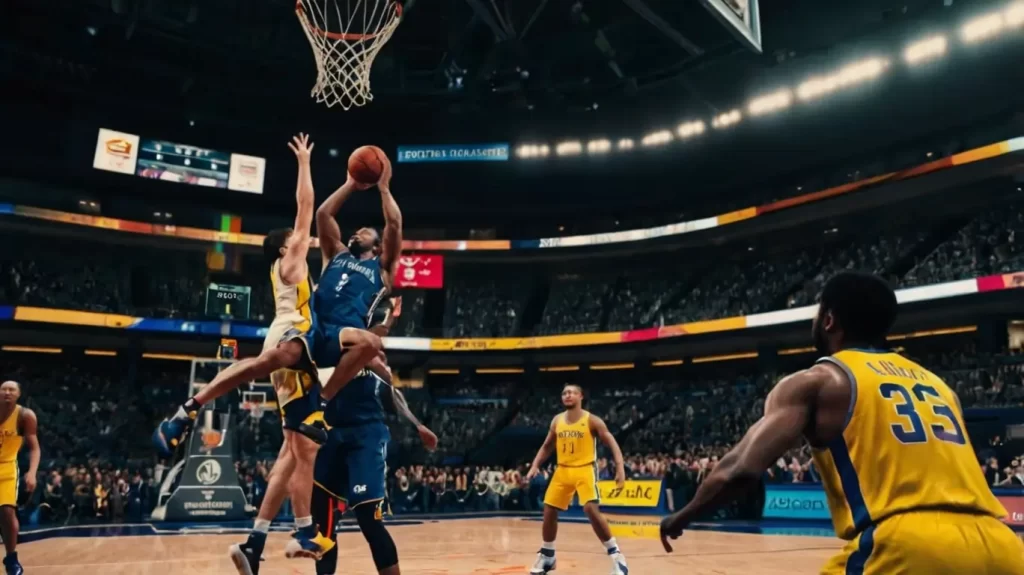Gaming has become an integral part of our lives, a vibrant escape into worlds where we can become heroes, strategists, or even gods. Whether you’re a seasoned gamer or just someone looking to explore new virtual realms, understanding the most popular types of games can guide your next adventure. As game genres diversify and their popularity surges, knowing what’s trending helps not only players but also developers who are aiming to capture our imaginations. Let’s dive into the colorful landscape of gaming genres that are capturing hearts and screens worldwide.
Most Popular Type of Game

Game genres are as varied as the stories they tell. Each offers a unique experience and caters to different tastes and preferences. From fast-paced shooters that test our reflexes to word games that challenge our intellect, there’s something for everyone in the digital playground.
Introduction to Game Genres
Games are more than just a pastime; they are a cultural phenomenon. The colorful spectrum of genres includes everything from the pulse-pounding action of shooters to the strategic depths of role-playing games. As these genres evolve, they not only shape the gaming industry but also influence the way we engage with media and each other. For gamers and developers alike, staying informed about these popular types can lead to more enriching experiences and innovative creations.
Top 5 Most Popular Game Genres in 2024
1. Shooter Games: Leading the lineup with a whopping 50.9% of gamers diving into this adrenaline-fueled genre. Whether it’s the tactical precision of games like Call of Duty or the battle royales of Fortnite, shooters offer an intense environment where quick thinking and sharp reflexes are king. There’s something exhilarating about the sound of a reload click and the strategy that unfolds with each round.
2. Action-Adventure Games: Close behind in the most popular types of games, captivating 48% of players who thrive on thrilling narratives and exploration. Titles like The Legend of Zelda series transport us to fantastical worlds where puzzles, combat, and exploration blend into epic quests. It’s the perfect genre for those who love a good story intertwined with an exciting challenge.
3. Role-Playing Games (RPGs): A haven for those of us who enjoy deep storytelling and character development. Games like The Witcher 3: Wild Hunt allow players to delve into immersive worlds, rich with lore and complex characters. Few genres offer the same level of personal investment and narrative impact.
4. Multiplayer Online Battle Arena (MOBA): Dominating the competitive scene, MOBAs like League of Legends and Dota 2 are synonymous with eSports. The rush of a perfectly timed strategy and team coordination captivates millions, making it a staple for competitive gamers.
5. Word Games: Gaining traction, especially among older demographics looking for cognitive engagement. Games like Words with Friends provide casual yet intellectually stimulating exercises that keep our minds sharp while connecting us with friends.

Platform Preferences by Genre
Choosing the right platform isn’t just about hardware preferences; it’s also a reflection of the types of experiences we seek in gaming. Each gaming platform offers distinct advantages that cater to specific genres, shaping how we play and engage with games.
PC Gaming: A Realm of Precision and Depth
For many gamers, personal computers remain the go-to platform for games that demand precision and deep interaction. This is particularly true for role-playing games (RPGs) and strategy games, where having a keyboard and mouse grants superior control when we talk about the most popular types of games. Take The Witcher 3, for instance; it’s a complex game that truly benefits from an advanced control system. Similarly, titles like Civilization VI or Wild Hunt are best played on PC, as the platform offers a wealth of options and controls. Plus, many PC games come with vibrant online modding communities, which enhance the gaming experience with customizations and new content, keeping these games fresh and exciting.
Mobile Gaming: Mobile Extension for Accessibility and Innovation
In today’s fast-paced world, where everyone’s juggling busy schedules, mobile gaming has truly carved out its niche as the go-to option for casual gaming. With nearly everyone owning a smartphone or at least knowing someone who does, gaming is more accessible than ever. Games like Candy Crush Saga and Words with Friends are perfect examples of this, as puzzle and vocabulary games fit seamlessly on mobile devices. They offer quick and entertaining gameplay, making them ideal for those short coffee or lunch breaks. Plus, mobile games are fostering new ways for people to connect, utilizing social networks to boost competition and player interaction.

Console Gaming: Part I: The Heartbeat of Action And Immersion
When it comes to the action and shooter genre, consoles hold the lead. Even though there were some worries about load times in the past, the advanced hardware of today’s consoles, like the PlayStation 5 and Xbox Series X, delivers stunning visuals and a seamless gaming experience right in your living room. Plus, the design of the console controller is tailored for comfort, making it ideal for fast-paced action in games like Call of Duty and Halo. You also get to enjoy exclusive titles on consoles that you just can’t find on PC, which adds to the overall gaming experience.
Demographics and Game Genre Preferences
Our journey through virtual landscapes is often shaped by our personal stories, with age and gender playing significant roles in the types of games that capture our hearts.
Age Influences: Youthful Energy Meets Mellow Contemplation
Youthful enthusiasm often finds its outlet in the high-octane worlds of action and shooter games when we discuss the most popular types of games. Teenagers and young adults, drawn to the adrenaline rush and competitive nature of these genres, enjoy the instant gratification and social interplay these games provide. Younger players are avid explorers of digital arenas where they can engage with friends and pit their skills against a global community.
In contrast, older gamers tend to gravitate towards more cerebral and relaxing experiences offered by word and casual games. For many, these games represent a comforting, less stressful escape that aligns with their lifestyle. Titles like Sudoku or Crossword Jam provide mental exercises that are both engaging and soothing, serving as a leisurely pastime that fits into their daily routines.

Gender Dynamics: Divergent Paths in Game Choices
Gender can impact what types of games people prefer. Traditionally, male gamers tend to gravitate towards action-packed genres like shooters, which not only deliver that fast-paced thrill but also highlight competition. This trend seems to reflect a cultural love for exciting scenarios where aggression and skill are put in the spotlight.
On the flip side, a large number of female gamers typically enjoy games that are more laid-back and revolve around puzzle-solving, such as The Sims or Animal Crossing. Many of the creative tasks that we see in games often come from these genres, focusing on creativity, problem-solving, and the richness of the content. This trend has inspired the development of various other gaming styles to cater to the diverse interests within gaming culture.
By understanding these demographic preferences, developers and marketers can create better gaming experiences that resonate with a wide audience in the vast world of video games.
Trends in Game Genre Popularity
As the mood of gaming changes, the new technologies and flips in cultural norms change the new trends of popular gaming types discussing the most popular types of games. Today we have several trends that define the development and popularity of the genres now in progress.

Cross-Platform Gaming: Breaking Down Barriers
One of the most prominent trends that affect the gaming world is the integration of cross-platform play. For example, earlier players were restricted to a certain platform such as PC, PlayStation, Xbox, etc., which consisted of players who were solely their own. However, cross-platform gaming has erased this divide, especially for genres such as First Person Shooters (FPS) and Multiplayer Online Battle Arenas (MOBA). It has been driven by the desire for better-socialized gaming, particularly in the online playing facility that is fast becoming a yardstick in competitive playing styles where mastery and harmony are the ultimate goals.
Games like Fortnite, Rocket League, and Call of Duty: Warzone have made massive strides in allowing players across different platforms to team up or face off against each other, irrespective of whether they are on PC, console, or mobile. The implications of this shift are profound: now, players are not limited by their choice of hardware, and matchmaking can occur on a global scale, making the community more vibrant and diverse. For MOBA games such as League of Legends and Dota 2, this trend helps expand the pool of competitors and contributes to the continued growth of the eSports scene.
Cross-platform play enhances not only social engagement but also gameplay longevity. By pooling players from various systems, developers can sustain larger, more active communities. This, in turn, drives further innovation, as developers can maintain a stable player base while testing new mechanics and expansions.
eSports: Elevating Competitive Genres
The explosion of eSports over the past decade has completely transformed competitive gaming and it has also affected the most popular types of games. What was once a niche hobby has now become a global industry, with millions of fans watching tournaments of games like League of Legends, Counter-Strike: Global Offensive, and Valorant. eSports has elevated genres such as MOBA, FPS, and real-time strategy (RTS) to professional levels, offering career paths to the most skilled players.
eSports is not just about the spectacle; it’s about skill, strategy, and teamwork. Competitive gaming has become a massive, highly organized industry with sponsorships, broadcasting deals, and multi-million dollar prize pools. This has led to a significant shift in how we view competitive genres. Games that were once considered purely recreational now hold the potential for players to turn pro and make a living from their craft.
This trend has also influenced game development. Developers now design with competitive balance in mind, often seeking feedback from the professional player community before making significant updates. The impact of eSports can be seen in titles like Dota 2, which hosts The International, a tournament with one of the largest prize pools in the world. Furthermore, eSports is beginning to inspire new game genres designed specifically for competition, like auto-battlers (e.g., Teamfight Tactics and Auto Chess), expanding the horizons of what competitive gaming can be.

The Resurgence of Word Games: Cognitive Engagement and Social Interaction
While action-heavy genres like shooters and battle royales dominate mainstream gaming through the most popular types of games, word games have been quietly enjoying a renaissance, particularly among more casual gamers. Games like Words with Friends and Wordle have become household names, and their resurgence speaks to a growing appreciation for intellectually stimulating experiences in gaming.
What sets word games apart is their ability to combine cognitive engagement with social interaction. Word games like Scrabble or Word Search require mental agility, expanding your vocabulary and testing your memory while offering a sense of accomplishment upon solving a puzzle. These games serve as a mental workout and provide a perfect balance for gamers who may not be interested in the fast-paced, action-oriented experiences that dominate the gaming industry. Not only that, but word games are highly social, often encouraging cooperative or competitive play with friends, family, or strangers online.
This genre is also witnessing innovation. For example, Wordle, a daily puzzle game that challenges players to guess a five-letter word, gained immense popularity in 2021 and 2022, proving that even simple word-based experiences can capture the imagination of millions. The success of these games is pushing developers to explore more cognitive-focused genres, blending education with entertainment.
Future of Game Genres
As we look to the horizon, it’s clear that the gaming industry will continue to innovate and break new boundaries. Technologies like Virtual Reality (VR), Augmented Reality (AR), and Artificial Intelligence (AI) are set to revolutionize the way we experience games and the genres we gravitate toward.
Virtual Reality (VR): The Next Frontier
Virtual reality promises to take immersion to a whole new level. Unlike traditional gaming, where players interact with a screen, VR places them directly inside the game world. Imagine stepping into the boots of your favorite character in a fantasy or sci-fi world, where the terrain, weather, and even the characters react to your every movement. Action-adventure, RPG, and first-person exploration genres stand to benefit immensely from VR’s immersive capabilities.
Games like Half-Life: Alyx have already shown the potential for VR to elevate first-person shooters and action-adventure games by making players feel as though they are physically part of the world. The added sense of presence is unmatched by traditional gaming in the world of the most popular types of games, creating a more visceral and emotional connection to the gameplay.
For role-playing games (RPGs), VR will push the boundaries of storytelling and world-building. Imagine walking through an enchanted forest in a fantasy world, where you can interact with the environment and characters as though you were there. VR will allow players to engage in narrative-driven games in an entirely new way, with richer experiences and deeper levels of immersion.

Augmented Reality (AR): Blurring the Lines Between Fantasy and Reality
While VR immerses players in entirely virtual worlds, augmented reality blends the real and digital worlds, opening up exciting possibilities for mobile gaming and location-based games. Games like Pokémon GO have already demonstrated AR’s potential to merge the virtual with the physical, and its popularity is paving the way for more AR-centric game genres.
In AR, the gameplay is intertwined with the player’s real-world environment. Players might have to physically move through their surroundings to capture objects, complete quests, or solve puzzles, making the game experience more interactive and dynamic. Genres such as puzzle games, treasure hunts, and location-based exploration could see a massive shift, providing not only gameplay but also social engagement in real-world spaces.
AI-Driven Personalization: A Tailored Experience for Every Player
AI is already being used in many modern games, whether it’s to create adaptive difficulty levels or enhance non-playable character (NPC) interactions. However, the future of AI in gaming will go far beyond these applications. We can expect AI to create hyper-personalized gaming experiences, where the game itself adapts in real-time to your playstyle, decisions, and behavior.
Imagine a game that recognizes your strengths and weaknesses and adjusts its challenges accordingly, or one that personalizes its narrative based on your choices, creating a unique story path for every player. AI will empower developers to craft dynamic experiences that evolve, ensuring that each playthrough is distinct and tailored to the player’s preferences. Genres that will thrive in this future will likely be story-driven RPGs and open-world games, where the narrative and world-building can adapt dynamically to the player’s interactions.
Conclusion
The gaming world is rapidly changing, influenced by cutting-edge technologies that are enhancing how we experience genres and what we can expect from the future. Cross-platform gaming, the rise of eSports, and the resurgence of cognitive word games represent just a few examples of how the landscape is shifting. Meanwhile, the advent of VR, AR, and AI offers a glimpse into the exciting possibilities awaiting us in the next decade. As these trends evolve, genres will adapt, and new experiences will emerge, enriching the diverse and ever-expanding universe of gaming. Whether you’re an eSports enthusiast, a casual mobile gamer, or someone looking to explore immersive virtual worlds, the future of gaming promises to offer something for everyone through the most popular types of games.
How can I find games from less popular genres that might interest me?
Exploring indie game platforms or forums dedicated to niche genres can introduce you to hidden gems that might not be mainstream but are uniquely fulfilling.
What impact does the gaming platform have on the type of games available?
Different platforms emphasize different capabilities—PCs may offer more complex simulations whereas consoles often focus on high-action experiences due to their processing power and control mechanisms.
Are there benefits to participating in multiple game genres?
Absolutely! Engaging with various genres can enhance cognitive flexibility, cater to different moods, and provide a broader understanding of diverse game mechanics and storytelling styles.













